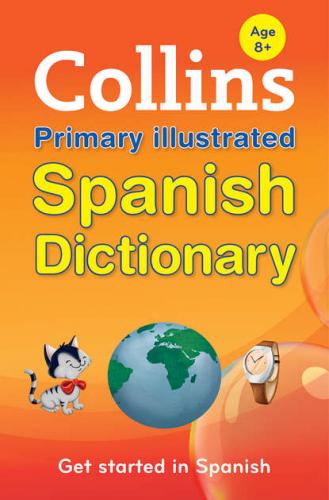es decir that’s to say ¡No me digas! Really?
el dedo NOUN
1 finger
2 toe el dedo gordo the thumb/the big toe
Language tip
el dedo gordo has two meanings. It can be translated as the thumb or the big toe.
dejar VERB
1 to leave He dejado las llaves en la mesa. I’ve left the keys on the table. No me dejes sola. Don’t leave me on my own.
2 to let Mis padres no me dejan salir de noche. My parents won’t let me go out at night. dejar caer to drop Dejó caer la bandeja. She dropped the tray.
3 to lend Le dejé mi libro de matemáticas. I lent him my maths book. dejar de to stop He dejado de morderme las uñas. I’ve stopped biting my nails.
del PREPOSITION ▷see de Vengo del colegio. I’m coming from school.
delante ADVERB
in front Siéntate delante. You sit in front. la parte de delante the front de delante front la rueda de delante the front wheel Se inclinó hacia delante. He leaned forward. delante de in front of/opposite
Language tip
delante de has two meanings. Look at the examples.
No digas nada delante de Anna. Don’t say anything in front of Anna. Mi casa está delante de la escuela. My house is opposite the school.
delgado (FEM delgada) ADJECTIVE
thin Estás muy delgado. You’re too thin.
demás
demás can be an adjective or a pronoun.
A (FEM demás) ADJECTIVE
other los demás niños the other children
B PRONOUN
los demás the others lo demás the rest Yo limpio las ventanas y lo demás lo limpias tú. I’ll clean the windows and you clean the rest.
demasiado
demasiado can be an adjective or an adverb.
A (FEM demasiada) ADJECTIVE
too much demasiado tiempo too much time demasiados libros too many books
B ADVERB
too much Hablas demasiado. You talk too much. Es demasiado pesado para levantarlo. It’s too heavy to lift. Caminas demasiado deprisa. You walk too quickly.
el dentífrico NOUN
toothpaste
el/la dentista NOUN
dentist Mi madre es dentista. My mum is a dentist.
dentro ADVERB
inside ¿Qué hay dentro? What’s inside? dentro de in Mételo dentro del sobre. Put it in the envelope. dentro de tres meses in three months por dentro inside Mira bien por dentro. Have a good look inside. Está aquí dentro. It’s in here.
dentro de poco soon
depender VERB
depender de to depend on El precio depende de la calidad. The price depends on the quality.
Depende. It depends.
el deporte NOUN
sport No hago mucho deporte. I don’t do much sport.
deportista
deportista can be an adjective or a noun.
A (FEM deportista) ADJECTIVE
sporty
Alicia es poco deportista. Alicia is not very sporty.
B MASC NOUN
sportsman
C FEM NOUN
sportswoman
deprisa ADVERB
quickly Acabaron muy deprisa. They finished very quickly. Lo hacen todo deprisa y corriendo. They do everything in a rush.
¡Deprisa! Hurry up!
la derecha NOUN
1 right hand Escribo con la derecha. I write with my right hand.
2 right doblar a la derecha to turn right a la derecha on the right Coge la segunda calle a la derecha. Take the second turning on the right.
derecho
derecho can be an adjective, an adverb or a noun.
A (FEM derecha) ADJECTIVE
1 right Escribo con la mano derecha. I write with my right hand.
2 straight ¡Ponte derecho! Stand up straight!
B ADVERB
straight Siga derecho. Carry straight on.
C MASC NOUN
right los derechos humanos human rights
¡No hay derecho! It’s not fair!
desagradable (FEM desagradable) ADJECTIVE
unpleasant un olor muy desagradable a very unpleasant smell Fuiste muy desagradable con tu prima. You were really nasty to your cousin.
desaparecer VERB
to disappear La mancha ha desaparecido. The stain has disappeared.
el
